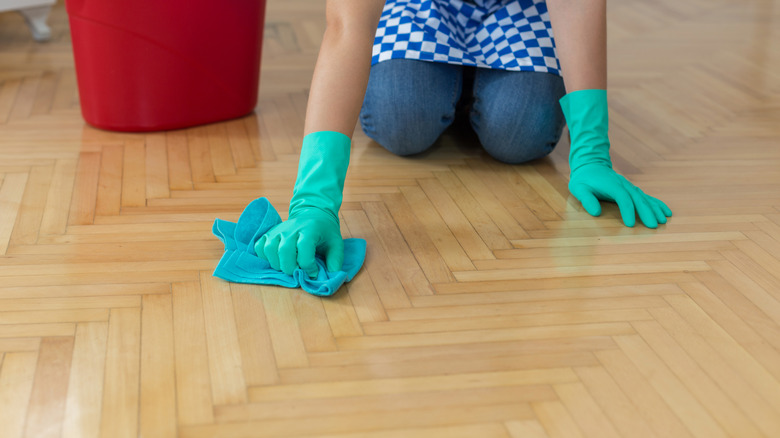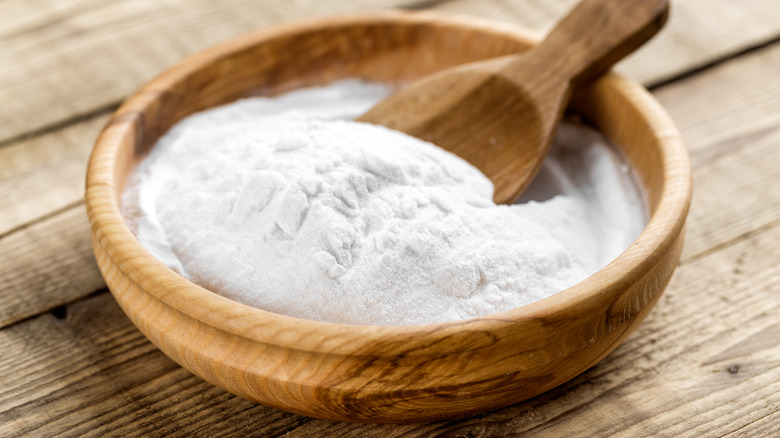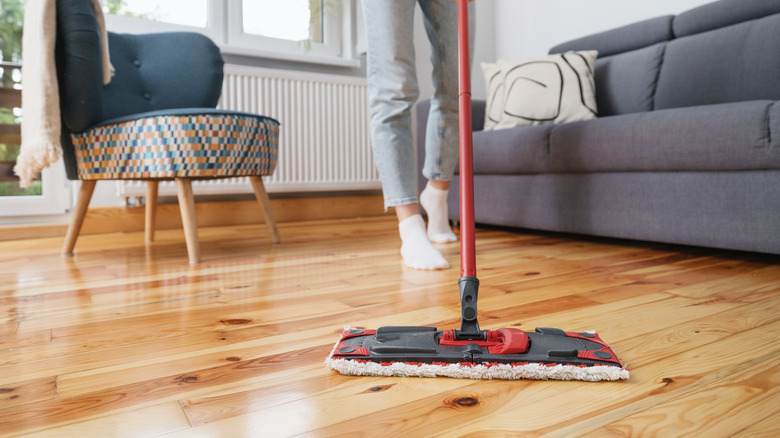Why You Maybe Should Avoid Using Baking Soda Cleaning Hacks On Wood Floors
Are you one of the many homeowners who rely on baking soda to clean surfaces around the house? If so, you know that the cleaning ingredient does a great job of removing stubborn stains and breaking down grime. Baking soda is an affordable alternative to other cleaning chemicals, so it presents the benefit of being budget-friendly as well. With all of the perks of the product, it might be your go-to cleaning ingredient. However, you should avoid using it on certain materials. This includes wood floors. Baking soda can scratch the flooring and may even cause a chemical reaction on certain types of wood.
Fast fixes for scratched wood flooring aren't fool-proof, so this damage can be quite frustrating–especially considering that you likely spent a great chunk of money on materials and installation. Investing in timeless wood flooring for your home is typically worthwhile as the material complements a wide range of design options and color schemes. To preserve the beauty of wood flooring, consider using other cleaning ingredients. Instead of baking soda, there are several hardwood floor cleaner options that are non-abrasive and gentle.
Baking soda can scratch or stain wood flooring
Wood flooring is usually finished with a protective layer to help preserve the material and provide a more polished look. Many homeowners opt for a shiny polyurethane protective coating, which can easily be scratched with abrasive baking soda. After sustaining unsightly damage, the previously shiny hardwood floors may look dull, and the scarred protective coating also leaves the flooring material susceptible to further harm.
As if the possibility of scratches wasn't concerning enough, baking soda can also cause a chemical reaction on certain types of hardwood floors. This is due to a component found in wood called tannin. Unfortunately, baking soda may cause wood to develop dark stains as part of this chemical reaction. Some woods are particularly high in tannins, including walnut, cedar, and some varieties of mahogany and oak. If your flooring contains any of these types of wood, you'll want to avoid using baking soda to clean the material altogether.
Use hardwood floor cleaner to avoid damage
One of the easiest ways to clean hardwood floors is using the hardwood floor cleaner recommended by your flooring manufacturer. It can be fun to experiment with DIYs or money-saving cleaning solutions, but using a cleaner formulated specifically for your flooring material is the best way to avoid damage. Before going in with a mop and mop bucket, be sure to sweep your floor to remove any dust or crumbs that will interfere with the rest of the cleaning process.
Next, pour your hardwood cleaning solution into a mop bucket according to the instructions listed on the packaging. You will likely need to dilute it with a specific measurement of water, so be sure to read carefully. Proceed to dampen your mop and run it across your wood floors as you normally would. Do not leave large pools of water, as this may cause damage. Keep in mind that you may need to go over stubborn stains a few times to remove them. As a final step, you may wring your mop out and run it over your floors a final time to get them completely dry.


